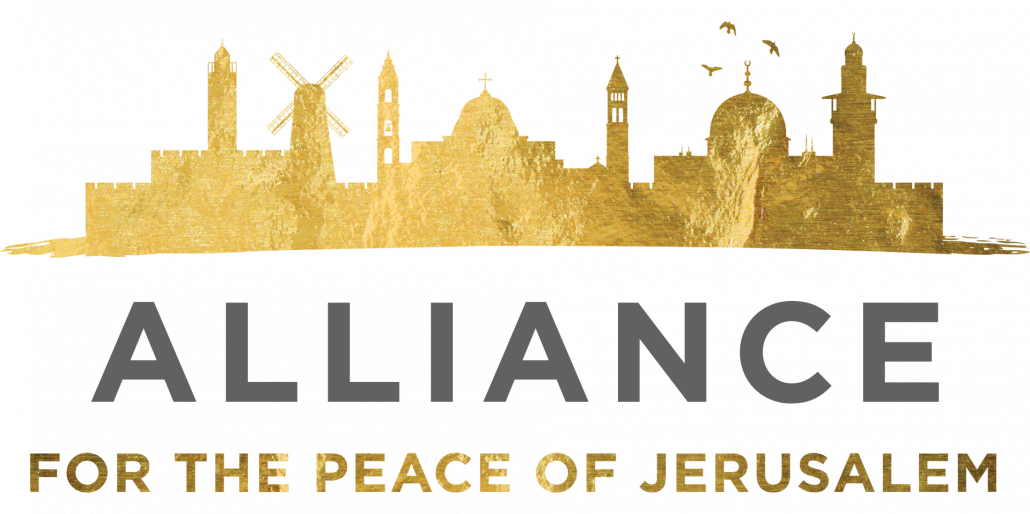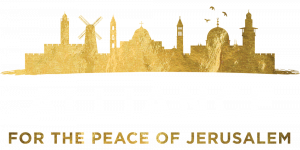When modern Israel announced its independence on May 14, 1948, the United States was the first country to recognize its official nationhood.[1] In fact, President Harry Truman recognized Israel as an official state only eleven minutes after Israel’s declaration.[2] Since then, Israel has had no greater friend than the United States.
This friendship was in the making even before the establishment of the modern Jewish state. During the American colonial period, John Adams wrote, “I really wish the Jews again in Judea an independent nation. For as I believe the most enlightened men of it have participated in the amelioration of the philosophy of the age.”[3] Years later, President John Quincy Adams similarly wrote that he believed in the “rebuilding of Judea as an independent nation,”[4] and President Abraham Lincoln referred to the hope of a Jewish nation as “a noble dream . . . and one shared by many Americans.”[5]
Today, the US Department of State affirms that this bond “has never been stronger” and that “Americans and Israelis are united by our shared commitment to democracy, economic prosperity, and regional security.”[6] These shared commitments, along with our common Judeo-Christian heritage, make for a natural partnership.
Judeo-Christian Heritage
Both the United States and Israel share a common heritage of Judeo-Christian values built upon the Hebrew Scriptures, which affirm that humanity is made in God’s image. Genesis 1:26 says, “Then God said, ‘Let Us make man in Our image, according to Our likeness; and let them rule over the fish of the sea and over the birds of the sky and over the cattle and over all the earth, and over every creeping thing that creeps on the earth.’” This common belief that humanity is made in God’s image extends to our mutual ideas of equality, justice, economic opportunity, the family as the building block of society, good medical care, and a democratic form of government.
Commitment to Democracy
Like the United States, the modern Jewish state carries a deep commitment to democracy. Israel, as the only democracy in the Middle East, guarantees all its citizens—regardless of race, religion, gender, and even sexual orientation—equal rights and opportunities. Israel’s Declaration of Independence states that “THE STATE OF ISRAEL [sic] will . . . ensure complete equality of social and political rights to all its inhabitants irrespective of religion, race or sex; it will guarantee freedom of religion, conscience, language, education and culture.”[7] The Jewish Virtual Library explains Israel’s commitment to democracy in the following way:
All citizens of Israel—regardless of race, religion or sex—are guaranteed equality before the law and full democratic rights. Freedom of speech, assembly and press is embodied in the country’s laws and traditions. Israel’s independent judiciary vigorously upholds these rights. The political system in Israel is based on free elections with divergent parties. And though Israel does not have a formal constitution, it has adopted Basic Laws that establish similar legal guarantees.[8]
In contrast to its neighboring Arab states, Israel allows its citizens to openly criticize their government, allows both Jews and Arabs to serve in its legislature, and advances women’s rights and voices—all values likewise held by United States’ citizens. One journalist put it this way: “In Israel—the Middle East’s sole democracy—Arabs, let alone Jews and other regional minorities, enjoy far more civil liberties than in any Arab country.”[9]
Both Israel’s and the United States’ commitment to democracy encourages a sense of individual responsibility—balanced by community obligation—and hope for a better future. These values naturally lead to a high regard for education.
The Value of Education
Both Israel and the United States value the importance of education. “Israelis are among the most highly educated people in the world. No fewer than twenty-nine daily newspapers are published in ten languages. More books are published per capita in Israel than anywhere else” according to the Jewish Virtual Library.[10]
The United States and Israel have even embarked on many joint educational ventures, according to US Department of State:
-
- The United States and Israel coordinate scientific exchanges through the Binational Science Foundation (BSF), the Binational Agricultural Research and Development Foundation (BARD), and the Binational Industrial Research and Development Foundation (BIRD). These institutions facilitate important academic exchange benefitting progress in science in Israel and the U.S.
- The State Department, together with the Israeli government, has supported more than 3,400 American and Israeli students and scholars through the Fulbright program, the United States government’s flagship international exchange program. The program has promoted joint research and scholarship between Americans and Israelis that has helped build lasting connections and increased knowledge-sharing across institutions.
- The U.S. Embassy in Israel provides outstanding Israeli students opportunities to study in the United States through the UGRAD, EducationUSA, and Fulbright Student Program. The Embassy also supports English language learning in Israel through the English Access Microscholarship program and the English Language Fellows Program.
- The U.S. Embassy in Israel supports programs and exchanges for Israeli graduate students, faculty, rising leaders, and professionals, including through the Fulbright Visiting Scholar program and the International Visitor Leadership Program.[11]
Israel’s high regard for education is evidenced in the fields of medical innovation and technology.
Innovation
Like the United States, Israel acts as a leading hub of medical and technological innovation. The nation produces about 1,000 startups each year,[12] making it the nation with the most startups per capita worldwide.[13] That is why the World Economic Forum has ranked Israel second in the world for innovation.[14] Israeli scientists are constantly producing new, ground-breaking medical therapies and technological innovations. “From health breakthroughs to technology, agriculture, the environment and the arts, the country’s innovations are transforming and enriching lives everywhere,” wrote Israel journalist Nicky Blackburn.[15] One such example is the invention of the PillCam. The PillCam changed the field of gastrointestinal (GI) diagnosis forever by allowing doctors to find and see GI disorders through a miniature camera swallowed in a pill. Another example includes the development of Copaxone, the world’s leading treatment for multiple sclerosis.[16] To read about more Israeli innovations that have changed the world, check out Blackburn’s list of Israel’s top sixty-four innovations.
In conclusion, Alliance for the Peace of Jerusalem encourages and views the relationship between the United States and Israel as a natural and beneficial partnership. As we pray for the peace of Jerusalem, we pray the United States would continue to bless Israel through its partnership, since the Lord has promised to bless those who bless Israel and curse those who curse Israel (Genesis 12:3).
by Jennifer Miles
______________________________________________________
[1] “U.S. Relations With Israel,” U.S. Department of State, January 20, 2021, https://www.state.gov/u-s-relations-with-israel/.
[2] Mitchell Bard, “U.S.-Israel Relations: A Special Alliance,” Jewish Virtual Library, accessed August 22, 2022, https://www.jewishvirtuallibrary.org/u-s-israel-a-special-alliance.
[3] James H. Hutson, ed., The Founders on Religion: A Book of Quotations (Princeton, NJ: Princeton University Press, 2009), 127.
[4] Abraham P. Bloch, One a Day: An Anthology of Jewish Historical Anniversaries for Every Day of the Year (Brooklyn: KTAV Publishing House, Inc., 1987), 308.
[5] Jonathan D. Sarna and Benjamin Shapell, Lincoln and the Jews: A History (New York, NY: St. Martin’s Press, 2015), 140.
[6] “The United States-Israel Relationship,” U.S. Department of State, March 26, 2022, https://www.state.gov/the-united-states-israel-relationship/.
[7] “The Declaration of the Establishment of the State of Israel,” Israel Ministry of Foreign Affairs, May 14, 1948, https://www.mfa.gov.il/mfa/foreignpolicy/peace/guide/pages/declaration%20of%20establishment%20of%20state%20of%20israel.aspx.
[8] “U.S.-Israel Relations: Shared-Value Initiatives,” Jewish Virtual Library, accessed August 22, 2022, https://www.jewishvirtuallibrary.org/u-s-israel-shared-value-initiatives.
[9] David J. Michaels, “Importance of Fighting the ‘Zionism Is Racism’ Smear,” Jerusalem Post, June 2, 2021, https://www.jpost.com/opinion/importance-of-fighting-the-zionism-is-racism-smear-669934.
[10] “U.S.-Israel Relations: Shared-Value Initiatives,” Jewish Virtual Library.
[11] “The United States-Israel Relationship,” U.S. Department of State.
[12] Ambi Parameswaran, “Tech Companies in Israel: Here, Startups Are Really Startups,” The Economic Times, August 4, 2017, https://economictimes.indiatimes.com/blogs/et-commentary/tech-companies-in-israel-here-startups-are-really-startups/.
[13] Nicky Blackburn, “The Top 64 Innovations Developed in Israel,” ISRAEL21c, April 22, 2012, https://www.israel21c.org/made-in-israel-the-top-64-innovations-developed-in-israel/.
[14] Viva Sarah Press, “World Economic Forum Says Israel Is 2nd Best on Innovation,” ISRAEL21c, October 25, 2016, https://www.israel21c.org/world-economic-forum-says-israel-is-2nd-best-on-innovation/.
[15] Blackburn, “The Top 64 Innovations Developed in Israel.”
[16] Ibid.


